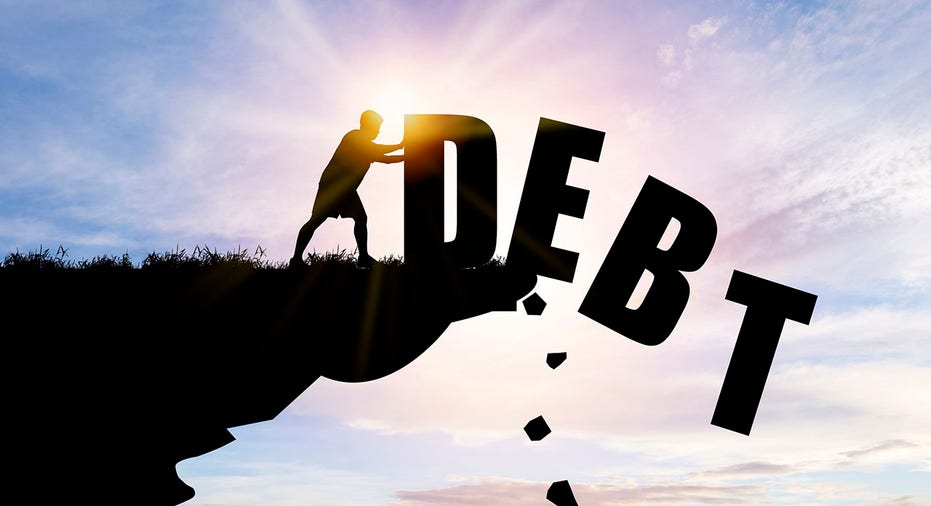Looking to pay down high-interest debt? Here are 3 expert-approved methods

Managing debt has consistently been a focus for Americans and it's seemingly no different following the COVID-19 pandemic. So VantageScore is offering tips on how to pay down debt. (iStock)
Managing debt has consistently been a focus for Americans and it's seemingly no different following the COVID-19 pandemic.
In the first quarter of 2021, the total household debt balances in the U.S. increased by $85 billion or 0.6%, to a total of $14.64 trillion, according to a report released by the Federal Reserve on July 8.
"In May, consumer credit increased at a seasonally adjusted annual rate of 10 percent. Revolving credit increased at an annual rate of 11.4 percent, while nonrevolving credit increased at an annual rate of 9.5 percent," the Federal Reserve said.
If you're trying to pay down debt, you could consider getting a personal loan to help make your monthly payments more affordable. You can compare multiple lenders at once on Credible and choose the repayment plan that works best for you.
AMERICANS RANK DEBT PAYOFF AS HIGHEST FINANCIAL PRIORITY, STUDY SHOWS — HOW TO MAKE IT HAPPEN
VantageScore, a credit score company developed jointly by credit reporting agencies Experian, Equifax and TransUnion, recently gave several tips for paying down high-interest debt. Tackling debt can help decrease your monthly payment, increase your credit score and improve your overall financial health.
To help pay down your debt, VantageScore recommended these three strategies:
- Debt consolidation
- Debt snowball method
- Debt avalanche method
1. Debt consolidation: Consolidating high-interest debt can help to lower total monthly payments and decrease interest rates, lowering the total amount you will pay over time and allowing more of each month’s payment to go toward paying back the amount owed, rather than toward added fees and interest.
Debt consolidation can come in various forms such as a personal loan or a balance transfer credit card. These cards often have interest rates at 0% for a set period of time for new credit card balance transfers. This offers consumers time to pay down the balance before accruing interest once again when the 0% window expires.
Visit Credible to check out your debt consolidation options and see if a personal loan or a balance transfer credit card is right for you.
PAYING OFF YOUR DEBT – 5 STRATEGIES TO DO IT QUICKER AND EASIER
2. Debt snowball method: Rather than paying all of your debt off at one time, some experts — including those at VantageScore — recommend the debt snowball method, where you focus on paying off your smallest balance first while making minimum payments on the rest. By eliminating one debt at a time, you work your way up to paying off your largest debt.
3. Debt avalanche method: Like the debt snowball method, this approach also focuses on paying off one debt at a time, with one key difference: Consumers start with the highest interest rate first, and work on paying off smaller debts at the end. This debt management plan allows debt holders to use the extra money they're saving from making high-interest rate payments and put it toward paying down more debt.
Final thoughts
Using these strategies can help you pay off any debt you've accumulated during the pandemic. Experts also suggest putting your credit cards away in order to ensure you aren’t adding more debt as you work to pay it down. Also, be sure to make on-time payments to avoid late fees that could increase your debt and hurt your payment history.
If you're curious about these strategies or are interested in taking out a personal loan to help you manage your debt, visit Credible to speak to a loan expert and have all your questions answered.
PROS AND CONS OF LONG-TERM PERSONAL LOANS
Have a finance-related question, but don't know who to ask? Email The Credible Money Expert at moneyexpert@credible.com and your question might be answered by Credible in our Money Expert column.




















